Let’s count down the best books I read last year! If you've been subscribed for a while, you might recognize a lot of the titles from my weekly letters. And you might know that the bulk of what I read is fantasy, horror, and sci-fi. With the occasional crime, romance, or literary novel thrown in. That's mostly what you'll get here too, along with a few Swedish novels and some non-fiction favorites.
Let's go!
7. A Court of Mist and Fury (A Court of Thorns and Roses #2), by Sarah J. Maas
Genre: High fantasy/romance
The ACOTAR series (as it’s called) is set in a fantasy world where humans and faeries are at war with each other. But mostly, the story is about the conflicts between the various faerie “houses”. And there’s a lot of romance, which, let’s face it, is probably what most of us come to Maas’s books for. 🙄
I enjoyed the first book, A Court of Thorns and Roses, which did a job of setting up the world, plot and characters. But it really got interesting in book two, which is my favorite in the series. Interesting character development, good pacing, and lots of suspense. And a plot twist that I made me have to stand up and walk around the room…
6. From Below, by Darcy Coates
Genre: Horror
Deepsea diving, shipwrecks, unexplained mysteries, underwater corpses, death by drowning... This book hits most of the checkboxes of the stuff that creep me out the most. Reading it felt a lot like watching a movie. I never got bored. The suspense and chills were there until the very end. Impressive.
5. Children of Time (Children of Time #1), by Adrian Tchaikovsky
Genre: Sci-fi
Reading Children of Time is like reading two books in parallell. One takes place in space, and is about humanity's struggle to find another planet to make their home. The other takes place on a planet, and follows a species of highly intelligent spiders (!) as they journey through evolution.
Some would say these books are not for the arachnophobic, but I beg to differ. If you are scared of spiders, reading this might cure you, because you will feel a lot for these creatures. Tchaikovsky writes with empathy and ingenuity. I'm looking forward to reading the second book in the trilogy soon.
4. Slewfoot: A Tale of Bewitchery, by Brom
Genre: Fantasy/Historical fiction
How I loved reading this story. On the one hand, Brom writes with the playful quirkiness of a children's fairytale. But in a dark setting of religious fanaticism, witchcraft and demons. This book is a masterclass on creating a likeable protagonist. You're fiercely on her side all the way. And the ending is so, so satisfying.
The hardcover edition of this book is a pure work of art, containing illustrations by the author.
3. Troubled Blood (Cormoran Strike #5), by Robert Galbraith
Genre: Crime
I'm not usually a fan of crime procedurals or detective novels. The Cormoran Strike series is the exception to the rule. These books are like crack to me. Partly because of the suspenseful plots and the "noir" feeling of the world, but mostly because of the two main protagonists and their relationship. Galbraith (J.K. Rowling) writes them in a way that makes you want to live in their world and be in their heads all the time.
2. The Ink Black Heart (Cormoran Strike #6), by Robert Galbraith
Genre: Crime
The most recent book in the series, released in 2022. Also, the longest one thus far. It's always a bit precarious when the page count in a series keeps growing and growing, which puts greater demands on the author to manage the pacing and maintain your interest. With these novels though, more is always better. The story kept me in a vice-like grip from page 1 to page 1408. Not many authors can pull that off.
And at number one…
1. The Murderbot Diaries, by Martha Wells
Genre: Sci-fi
I'm going to cheat, and treat these as a separate entity, although they're really 5 novellas + a novel. I devoured them one after the other over the course of just a few weeks, and so they kind of felt like one long book to me. 😌
I barely know what to say to do this series justice. I don't think I've ever been as jealous of an author's voice before. Or their main character. Or their worldbuilding skills. I obsessed over it for months. Read and listened to every interview she's ever done. Marked out my favorite passages. Evangelized about it to friends and family. I'll probably re-read them all soon, because I miss hanging out with Murderbot. I never thought an anti-social, sarcastic, non-human killing machine would become my literary soulmate. 🖤
I ran my code to make my movement and body language more human to keep from drawing attention. I was running it now out of habit. When I stopped it, I’d look a lot more like a “normal” SecUnit even without armor. (Normal = neutral expression concealing existential despair and brain-crushing boredom.)
(From “Network Effect”, by Martha Wells)
4. Aquanaut: A Life Beneath The Surface, by Rick Stanton
I'm obsessed with the story about the 2018 Thailand cave rescue for several reasons: 1. Submerged caves = scary as fuck. 2. The whole world coming together in an against-all-odds rescue mission = hope in humanity. 3. Rick Stanton = one of the most fascinating people I've ever come across.
I had already watched two documentaries, and the movie Thirteen Lives (for which Rick was a technical advisor.) So I knew most of what there was to know about the event. But in this book, I got to hear the whole story from his perspective, plus lots of other crazy, horrific stories from his life as a cave diver. The book is well-structured and well-written, and a pure thrill to read.
3. The Long Descent: A User's Guide to the End of the Industrial Age, by John Michael Greer
I've read a lot of books over the years to try to come to terms with my climate anxiety and overall dread of the future. This is the first one that really helped me, and did so without triggering anxiety and depression. No doomsday fearmongering, nor lofty tech evangelizing. This book, although it tells plenty of uncomfortable truths, is rational, nuanced, down to earth, and oddly calming. It gave me the perspective and the mental tools to deal with my sorrow, anger, and helplessness, and the concrete advice for how to channel my emotions into action. Highly recommended.
We can’t count on the future to bring us a better world, via progress, apocalyptic collapse, or any combination of the two. Rather, we can count on it to bring us a world of hard ecological limits, restricted opportunities, and lowered expectations, in which many of our fondest dreams will have to be set aside for the foreseeable future—or forever. It’s a world where hopes can still be realized, dreams can still be pursued, and the experience of being human can still be contemplated and celebrated, but all these things will have to be on a much more modest scale than the experience of the recent past or the utopian dreams that either the progressive or the apocalyptic myth have prepared us to consider.
2. Stolen Focus: Why You Can't Pay Attention- and How to Think Deeply Again, by Johann Hari
I know I’m not the only one who’s ability to focus and be productive is quickly eroding due to internet use and digital technology. We are in a global, attentional crisis. Reading this book reminded me of what's at stake, and why I need to protect my brain better.
Stolen Focus is full of fascinating studies and interviews, tied together by the highly relatable stories of Hari's own digital detox experiments. In contrast to the usual self-help books about "how to reclaim your attention", this one looks at the bigger picture, and puts the blame where it belongs - on the corporations and societal systems that shape the way our minds work. Yes, we all need to take personal responsibility for our mental health. But we also need to mobilize to fight the systems that are doing this to us for their own gain.
I found strong evidence that our collapsing ability to pay attention is not primarily a personal failing on my part, or your part, or your kid’s part. This is being done to us all. It is being done by very powerful forces. Those forces include Big Tech, but they also go way beyond them. This is a systemic problem. The truth is that you are living in a system that is pouring acid on your attention every day, and then you are being told to blame yourself and to fiddle with your own habits while the world’s attention burns.
And at number one…
1. The Death of the Artist: How Creators Are Struggling to Survive in the Age of Billionaires and Big Tech, by William Deresiewicz
Here are some of the feelings I felt while reading The Death of the Artist: Anger. Disbelief. Sadness. Solidarity. Disillusionment. Despair. Most of all, I felt deeply seen and understood for perhaps the first time in my career. I felt less alone.
Being a self-employed creative is anything but easy. We all know that. I just didn't understand the extent of the corporate greed, lies, and systemic injustices that are making it near impossible for us to make a decent living. This is way bigger than our personal failings as artists. The whole game is rigged against us, and it’s getting worse each year. We need to do something about it.
This book is not for the faint of heart. If you are easily triggered, have a sensitive ego, or just prefer to keep your romantic dreams of the artist's life intact, don't read it. It will crush your spirit. It crushed mine. And then kind of built me back up again. I think we all need this wake-up call, so that we can see though the lies that are being sold to us, and make better decisions for our career.
It was almost impossible to choose between all of the quotes I saved from this (highly quotable) book, but here are three favorites:
The good news is, you have the freedom to pursue the new opportunities. The bad news is, so does everyone else. The good news is you can do it yourself. The bad news is you have to.
Art has value. It ought to have financial value. No, people don’t deserve to get paid for doing something they love—an argument you often hear in connection with issues like piracy—but they do deserve to get paid for doing something you love, something other people love.
Professional artists, it bears repeating, do not work for money. They earn money in order to work for love. They would love to work exclusively for love, but they don’t have the money.
And, as a bonus for my fellow Swedes, here are the best Swedish novels I read in 2022:
Verkligheten, by John Ajvide Lindqvist
Vi for opp med mor, by Karin Smirnoff
Sen for jag hem, by Karin Smirnoff
Grim, by Sara Bergmark Elfgren
Löpa varg, by Kerstin Ekman





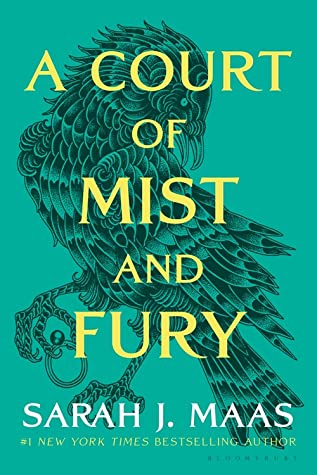


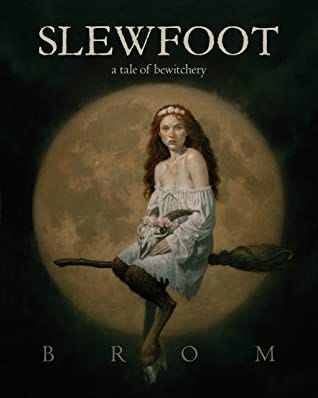





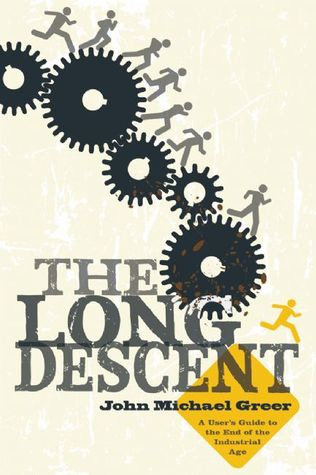
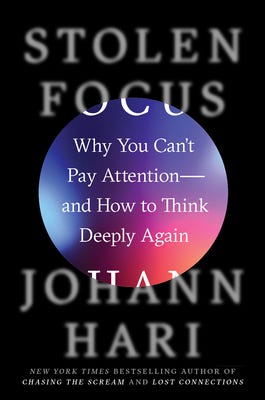
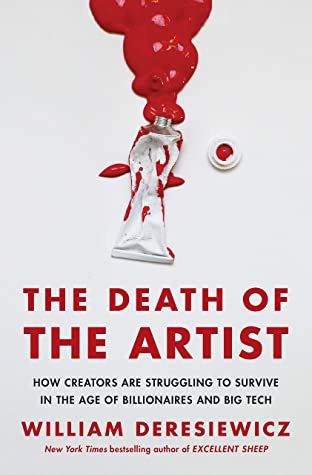


Thank you for this. I will definitely add The Death of an Artist on my list. The last quote got me all emotional. I'm ready to be woken up. :)
I really want to read more fiction this year. I definitely have Martha Wells books on the list!
And now I have so much more after your list.
I did not read many books last year, because I was in the numb state of everything and then I overworked fulltime for 8 months. Now I am kinda back to slower life. I appreciate this opportunity provided by my partner. I loved being book art director, and I hope to art direct more book covers in the future, but for now I would love to focus on sharing my time between my son, our wellbeing in another country and my own art. And my art feeds on books for sure. I was thinking that I would love to do alternative book covers for the books I loved, of illustrations based on the books.